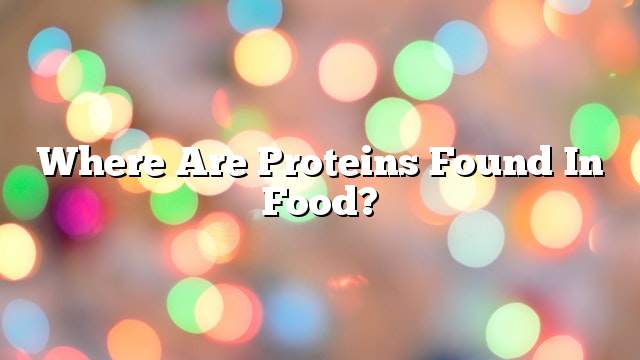Proteins
Proteins consist of amino acids linked by amino bonds to form a chain of amino acids, which are the basic building blocks of any type of protein. The difference in the number, type and arrangement of amino acids causes a difference in the type and characteristics of the protein. In addition, proteins provide us with the energy the body needs to control its vital processes, as one gram of protein provides the human body with four calories. A person often needs 0.8 grams of protein per kilogram of weight, or 20 percent of the total calories consumed per day.
A study in the Netherlands found that eating proteins in the meal increases the feeling of satiety for a longer period of time, which helps reduce the consumption of more calories during the day, helping to reduce weight and reduce obesity and accumulation of fat in the body. In addition, the study showed that people who eat enough protein during a healthy and balanced diet are less likely to regain lost weight during the diet period. It is worth mentioning that increased intake of protein would improve body structure and better distribution of fat and muscle .
Sources of proteins in food
Proteins in the foods we eat every day are of different proportions, as are the sources of animal food and plant food sources. It is worth noting that the absorption of proteins from animal sources is higher than their absorption from plant sources. Because the plant foods contain a higher amount of fiber, Reduces the absorption of protein in plant foods. In addition, animal protein sources should contain a relatively high amount of saturated fat and cholesterol, making animal products Night-fat is always the best option.
Food containing proteins
There are many sources that provide the body with proteins, and here we review the most important foods that contain good proportions, including:
- Red meat, chicken and fish: In addition to the good protein content of this group, meat, poultry and fish contain a high proportion of minerals and vitamins including iron, zinc, vitamin B12, Fish also contain fatty acids essential to the health of the body and heart, especially Omega 3.
- eggs: White eggs contain a high protein content. A medium-sized egg contains about six grams of protein. In addition, eggs are a source of proteins available to everyone at low prices and are easily prepared with different dishes in all meals during the day. The American Heart Association has confirmed that a healthy person can eat one egg a day.
- Milk and dairy products: Milk and dairy products are among the most important sources of animal proteins. These products include milk, cheese and cheese. These products help to improve the growth of bones and teeth because they contain high levels of calcium and vitamin D, which contributes to the prevention of osteoporosis. Which helps to choose low-fat products to reduce the consumption of saturated fat during the day, especially for those suffering from high levels of cholesterol and lipids in the blood or those who wish to lose weight.
- Legumes: The legumes (white beans, black beans, lentils, peas, chickpeas, soybeans, beans and thermoses) are good sources of plant protein, especially for vegetarians who do not eat meat and meat products. Legumes are also low in fat, A high fiber that enhances the feeling of fullness for a longer period.
General Tips
It is recommended when you follow a healthy diet and balanced focus on the introduction of proteins of all kinds, in addition to taking the following tips into account:
- Not eating too much protein, an Australian study showed that eating more than 35% of calories from proteins leads to liver problems and causes fatigue and diarrhea. In addition, excessive protein intake leads to kidney disorders and osteoporosis.
- Diversification in the sources of animal and plant proteins, because most sources of animal proteins are high in fats, which can lead to weight gain and high blood lipids.
- Attention to the method of cooking and preparation of meat and chicken, by removing the skin from the chickens, and the elimination of fat in cut meat, and advised to get rid of excess oil after cooking by filtering meat from oil.
- Choice of milk and its products stripped-fat or low-fat instead of full-fat; to reduce the amount of fat intake.
- Protein intake in exercise and weight lifting may be increased to about 1.4 grams of protein per kilogram of body weight instead of 0.8 grams of protein per kilogram of body weight in people who do not exercise.
